🥳🎉 “People fail their way to success every single day.”
Author Q&A with Lori Dyan, a new craft series, and practical tips to get your inner game in order 👏🏼
Boola Bos is located in Toronto / Tkaronto. We acknowledge that the land we’re on is the traditional territory of five Indigenous communities: Ho-de-no-sau-nee-ga (Haudenosaunee), Wendake-Nionwentsïo, Anishinabewaki ᐊᓂᔑᓈᐯᐗᑭ, Mississaugas of the Credit First Nation, and Mississauga. The territory consists of ceded land, covered under the Toronto Treaty 13 of the Upper Canada Land Surrenders, and the Williams Treaties, as well as unceded land that continues to be contested. We acknowledge the genocide, systematic oppression, and exploitation of Aboriginal peoples, land, cultures, and languages across what we now know as Canada. As writers we are particularly aware of the tremendous power of language and place names and invite you to learn more about the land you inhabit, the history of that land, and how to actively be part of a better future going forward together at Native Land or Whose Land.
📝 Letter From The Editor 💁🏻♀️
Hallo!
And happy weekend to you! I'm super excited to be writing to you today from our new home on Substack. We have so many fun things lined up for you in this issue 👏🏽
Our author Q&A with Lori Dyan, author of Burn Your Sh*t is full of practical tips on silencing your inner critic, handling rejection, and turning failure into your new BFF and I'm excited for you to read it!
We also share some actionable, practical tools for you to start using today to get your mindset in order.
People often talk about athletes’ “inner game”, a phrase coined by Timothy Gallwey. Unlike their outer game which is against an opponent, the inner game is what athletes need to focus on to overcome all habits of mind which inhibit excellence in performance. A whole lot of money is spent on ensuring pro athletes show up on the field or on the court not just with the skills and training needed to succeed but with the ability to get out of their own way so that they can put those skills and training into action. So they can, in short, perform.
When you consider how much money is at stake, it’s little surprise that so much energy is dedicated to ensuring athletes can perform but the way I see it, although the monetary value may be much MUCH lower, there is absolutely dollars at stake when it comes to whether or not I can perform as a writer. I’m not just talking about what I earn from my writing now or in the future but about the unquantifiable lost earnings (or investment, if you want to put it that way) that result from dedicating years to working on a manuscript.
For me personally, the stakes attached to whether or not I perform when I show up at the page feel as high as I’m sure they do to the stakeholders who are set to cash in when LeBron James is on a winning streak (or whatever, I don’t actually know much about basketball..! But you get my point).
And I’m only talking here about the economics of performance. That is to say nothing of the personal development, life satisfaction, and other factors that are on the line for writers everyday.
So in this issue we’ll be sharing the first of many tools that you can use to start getting your Writer’s Inner Game in order 👏🏽
Before I go, I want to remind you that if there’s any topic that you would like to see us cover, feel free to let me know in the comments! One of the best things about being a writer (in my humble opinion!) is getting to know other writers. Growing relationships, supporting each other, and learning from each other. So reach out and let me know your thoughts, share an idea, or just to say dia dhuit (that means hi in Irish btw. And for my fellow pronunciation nerds, it’s pronounced “DEE-uh GWIT”)
Thanks a million for reading,
Bron 💜
Bronwen Keyes-Bevan
Founder, Boola Bos
📚✍🏻 Author Q&A with Lori Dyan: “People fail their way to success every single day; you have to reframe failure as an essential step on your road to victory.”🔮✨
We caught up with Lori Dyan, author of Burn Your Sh*t, as she shares practical tips on silencing your inner critic, handling rejection, and turning failure into your new BFF 👯♀️
LORI DYAN has been known as Tarot Lori for over thirty years. She has an international clientele—from Hells Angels to CEOs, celebrities to CIA operatives—and a dedicated Instagram following. Despite being mentored by a legit, crystal-ball-gazing witch, Lori is not your average tarot card reader. Her tagline, "Woo Woo Without the Cuckoo," reflects her modern and accessible style of tarot. Because Lori is a member of the Peguis band (from Cree and Ojibwe descent), her lineage is woven throughout her work—it is the source of her magic. As well as offering online readings and workshops worldwide, Lori is a popular media guest, keynote speaker and event entertainer.
BOOLA BOS: Writers often experience a loud—and obnoxious!—inner critic. Have you any suggestions for how someone might use the power of ritual to silence the inner critic?
LORI DYAN: Do I ever! Take a moment to visualize that voice in your head and give it a physical form (for example, mine looks very troll-like and smells like dirty diapers). When you have a clear picture in your mind, take a minute to murder it using whatever means necessary (I blow mine up like Coyote in the Road Runner cartoons). You'll probably feel lighter afterwards, but that voice will creep back in, so you have to be mindful of when that inner critic starts piping up so you can once again kill it in your mind (feel free to get creative!).
It can help you put things into perspective in the moment (i.e., "Nobody will die if I fail that test,") but more importantly, it silences the voice in your head that you've accepted as true without question. Even if you never do this ritual again, you're lowering the volume of your inner critic by shining the light of awareness on it (kind of like standing up to the bully who immediately backs down a bit). I've been telling people about this ritual for over twenty-five years because it’s so effective (it’s a whole chapter in the book)!
BB: In recent years science has proven what many people have understood for thousands of years: that visualization has an enormous power to help us achieve goals, speed the healing process, overcome phobias, and much more. Have you any tips for how a writer who is new to visualization could get started and use it to help them work towards their goals?
LD: For me, the key is getting quiet (sitting on a chair in meditation, walking in the woods, or swimming laps at my local pool are all fave methods). Instead of visualizing myself through a lens, like a character in a movie, I imagine things from my point of view. For example, I visualized opening a box of my books back when I was first querying agents. I couldn't see a clear picture of what the cover looked like (or how I looked), but in my mind's eye I saw myself using scissors to slice open the packing tape and pulling back those cardboard flaps. I also wrote out the acknowledgements for my book before the book was written ("To my agent, TBD, thank you for your unwavering support...") and although none of them actually made it in the printed copy, just that physical act of writing a key part of my manuscript gave my visualizing an added boost.
BB: At the heart of your book, BURN YOUR SH*T, is the idea of getting rid of the old (regrets, unhelpful attitudes, etc.). Writers often spend a lot of time mulling over rejections and / or perceived missteps. How can writers start to let go of these unhelpful habits?
LD: I think it's okay and normal to feel sad or disappointed when things don't work out the way you'd hoped. I always let myself feel those feelings and throw myself a little pity party. But I don't wallow because I've learned from experience that rejection is often protection and there will usually be perspective down the road to understand why things didn't go as planned.
There's always a takeaway, even if it's learning how to do better next time. I've sent query letters with typos and instead of berating myself for eternity I saw it as a wake up call to get procedures and checklists in place to ensure it never happens again. And, even if it does, nobody will die as a result... See answer to your first question 😉 People fail their way to success every single day and you have to reframe failure as an essential step on your road to victory.
“People fail their way to success every single day and you have to reframe failure as an essential step on your road to victory.”
—Lori Dyan, in conversation with Boola Bos Magazine
BB: It's critical for writers, when in the drafting / creating phase, to be in touch with their intuition. This is usually where the best ideas and writing comes from. But our society doesn't seem to value or help nurture intuition. What are some practical things that writers can do to get in touch with their intuition?
LD: This may be the last thing you want to hear, but for me it's writing (ha!), but I mean writing wild, a.k.a. free writing. You pick up a pen every day and set a timer for five minutes minimum, then start writing without thinking, planning or stopping, only letting your pen stop moving when you flip to a new page. The first page might be filled with nonsense ("This is dumb did I buy dog food is it going to rain today I have to pee this is so stupid,") and that's okay because you're letting out the monkey-mind chatter to get to the good stuff.
Another intuition igniter is meditation, but I prefer the writing wild method because little sparks of inspiration often arise out of this ritual. I go into greater detail about this in the book.
BB: If you could offer one piece of advice to someone hoping to improve their wellbeing, what would it be?
LD: Breathe. Seriously, taking five intentional breaths to start and end your day can change your life. Inhale through your nose for the count of five, hold for five, then exhale out of your mouth for the count of eight. Every time you do this, you're resetting your central nervous system. It's like giving yourself an energetic hug. Just typing this out reminded me to do it and I already feel better!
Burn Your Sh*t is available now from HarperCollins. You can order it at our Bookshop.org page. Purchasing books through Bookshop.org supports authors, indie bookstores, and small businesses. Win-win-win!
🎉 Get Ready for Our New Craft Series with Bronwen Keyes-Bevan! ✍️
Bi-weekly videos and articles to level up your writing game, coming soon to Boola Bos Magazine!
We’re super excited to announce that we’re launching a brand-new craft series! 🎉
Starting Saturday, July 13, our very own Bronwen Keyes-Bevan, founder of Boola Bos, will be sharing all the tips, tricks, and lessons she’s learned from over a decade of writing. Whether you’re a seasoned writer or just starting out, these bi-weekly videos and articles will have something for you.
We’ll be sharing
’s vids and articles right here. They’ll arrive straight in your inbox (unless you would like to unsubscribe which you can always do, we won’t take it personally because we understand that inboxes get BUSY!)We can’t wait for you to join us on this creative journey! 🚀
More about Bronwen:
Prior to launching Boola Bos, Bronwen was newsletter editor at The Shit No One Tells You About Writing, a podcast for emerging writers with over three million downloads. At The Shit No One Tells You About Writing, Bronwen founded the brand’s newsletter, interviewed dozens of bestselling authors and publishing industry experts, and oversaw all editorial aspects of the newsletter.
She is currently putting the finishing touches on her debut novel, a project which has been supported by the Toronto Arts Council and which landed her a spot in Diaspora Dialogues' mentorship program.
Born in Toronto but raised in Ireland, Bronwen studied filmmaking at University of Winchester, UK and screenwriting at Humber College, Toronto.
Her writing on literature, art, and entertainment has appeared in The Irish Times, The National Post, Flare, Post City, and elsewhere. She has appeared as a guest interviewer on The Shit No One Tells You About Writing and her personal essays have appeared on She Does The City and in the Irish Times anthology, Ireland and Me: Reflections by Emigrants.
She has served as a member of the University of Toronto’s Hart House Literary and Library Committee and as a prose reader for numerous literary journals, most recently at CRAFT Literary.
Her most recent screenplay was shortlisted for the Sundance International Screenwriters Lab and the WeScreenplay Diverse Voices Contest.
She honed her writing craft as assistant to Emmy Award-winning writer and director, Patricia Rozema (Into The Forest, Mansfield Park, I’ve Heard The Mermaids Singing) and taught filmmaking at University of Toronto’s Hart House.
🙌 Not an Ad, Just a Fan: Tiffany Grimes' Tips for Energetic Protection During Book Launches 🌟
This month, we're raving about Tiffany Grimes from Burgeon Design and Editorial and her essential advice for keeping your cool during book launch madness!
Tiffany’s got some amazing, down-to-earth tips on how to protect your energy and wellbeing in the run up to launching your book. Whether you're gearing up for your first book release or you're a seasoned author, the launch phase can be a whirlwind. Tiffany’s practical advice helps you stay grounded and protect your energy, so you can navigate the chaos with grace and ease. We're huge fans of her holistic approach and can’t wait for you to dive into her wisdom! 🚀💖📖
You can check out more about Tiffany and her work here.
✍🏾The Writer’s Inner Game: Mastering the Art of Quieting the Mind 🧘🏽♂️
Tips to help writers like you get out of your own way and achieve peak performance when you get to the page.
The Writer’s Inner Game is your go-to spot for boosting your creative mojo. Today we’re diving into some super practical tips for quieting the mind. You know how sometimes you sit down to write, and your brain feels like it's buzzing with a million thoughts? Sometimes the thoughts are fun: new ideas or the solution to a story problem. But sometimes that mental chatter can sound a lot like someone doubting you or telling you you’re not good enough, that you’re never going to achieve what you want, or that it’s too late, and you’re too old. (We’ve all been there).
When it comes time to sit down to write, you have to take a leap of faith. Now is not the time to go into training mode (i.e., learning or practising new craft skills). Now is the time to perform. And to do your best work you need to reduce the mental chatter and self-criticism, trust your abilities, and allow yourself to perform.
From mindfulness techniques to setting the perfect writing scene, these tips will help you calm that mental chatter so you can let go and get into flow 🚀💡📖
Set the Scene
Create a Quiet Space: Choose a calm, clutter-free environment where you won't be easily distracted.
Use Background Noise or Music: Some people find that gentle background music or ambient sounds (such as brown noise) help to block out distractions and keep the mind focused.
Use Earplugs: If you’re sensitive to noise or easily distracted, consider using earplugs.
Build a Ritual: Consider creating a simple ritual around drafting such as using a specific pen only for drafting, lighting a specific candle, working in a specific place that’s different to the pen / candle / place you use for other kinds of work or writing (like editing or querying). This will help prime you to write. Basically you’re pulling a Pavlov’s Dog situation here (in which you are Pavlov and the dog 😄)
Set Clear Intentions
Define Your Goal: Know what you want to achieve in your writing session. Whether it's completing a chapter or brainstorming ideas, having a clear goal helps focus your mind. Then write it down. Goal Achievement Theory has garnered substantial support through research and suggests that the act of writing down goals not only improves clarity and motivation but also creates a sense of commitment and accountability. A study at Dominican University found that people who wrote down their goals were forty-two percent (!) more likely to achieve them compared to those who did not.
Visualize Success: Spend a few moments visualizing yourself writing smoothly and successfully. This can set a positive tone for your writing session and the science shows that visualization, also known as mental rehearsal or mental imagery, helps people achieve their goals.
Limit Distractions
Turn Off Notifications: Silence your phone and disable notifications on your laptop to avoid interruptions. (You can program most phones to allow specific phone numbers—such as your kid’s school or your elderly parent—to be able to call even when your phone is on Do Not Disturb mode).
Set a Timer: Use a timer to block out dedicated writing time, during which you commit to focusing solely on your work. When something pops up mentally (“I still need to send that email, I must pick up some milk, I wonder if we’ll ever discover life on another planet,”) you can simply thank your mind for trying to help but remind it that you’re currently focusing on writing. You might keep a scratch pad nearby in case you really need to write something down. Once you’ve jotted that note to self down, remind yourself that that’s taken care of now and it’s time to return to the task at hand.
Free Writing
Stream-of-Consciousness Writing: Set a timer for ten minutes or decide on a maximum of five pages and write continuously without worrying about grammar, spelling, or punctuation. Write longhand, stream-of-consciousness, and remain non-judgemental. This helps you get into a flow state and quiet your inner critic.
Embrace the Mess
Allow Imperfection: Accept that your first draft doesn't need to be perfect. Allowing yourself to write freely without judgment can quiet self-critical thoughts.
Write with a “Shitty First Draft” Mindset: As Anne Lamott suggests, embrace the idea that your first draft will be rough (not, might be rough, will be rough), and that’s okay. The goal is not to write something good (nigh on impossible in your first draft) but to get your thoughts down on paper so that you have something to work with for your next draft (in which you can make it good).
Have you experienced this kind of mental chatter? The inner critic, or self-doubt? Let us know in the comments!
Okay, friends, that's a wrap on this issue! We are sending you lots of good writing energy ✨
Thanks so much for reading! If you enjoyed this issue, why not share the love 💖
Take it easy,
The Boola Boss Crew 👏🏽


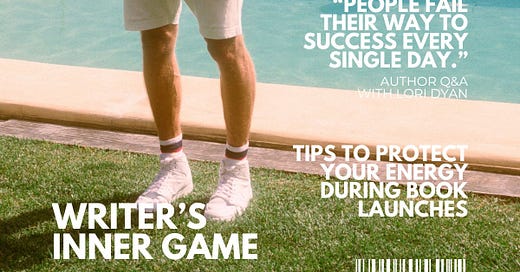


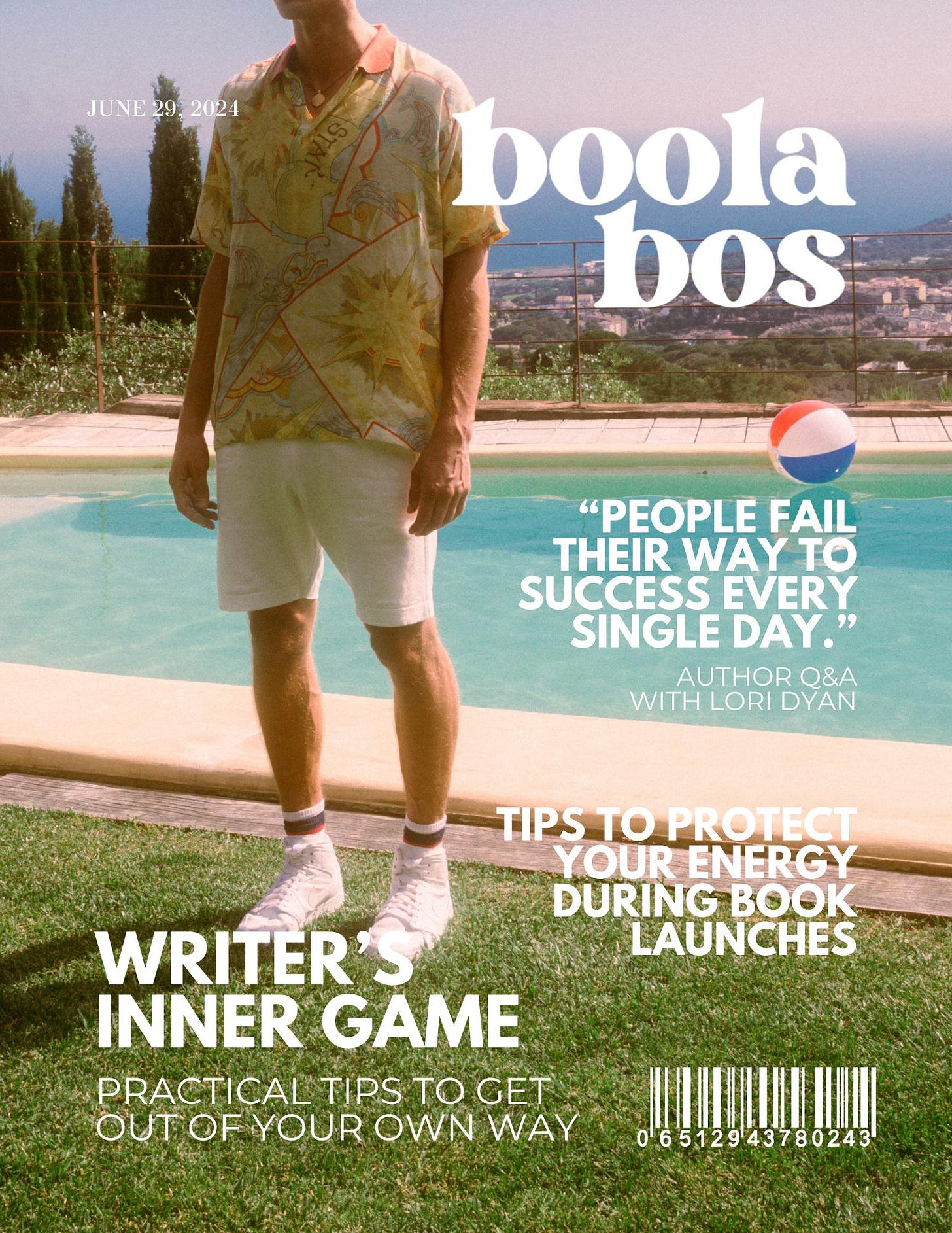
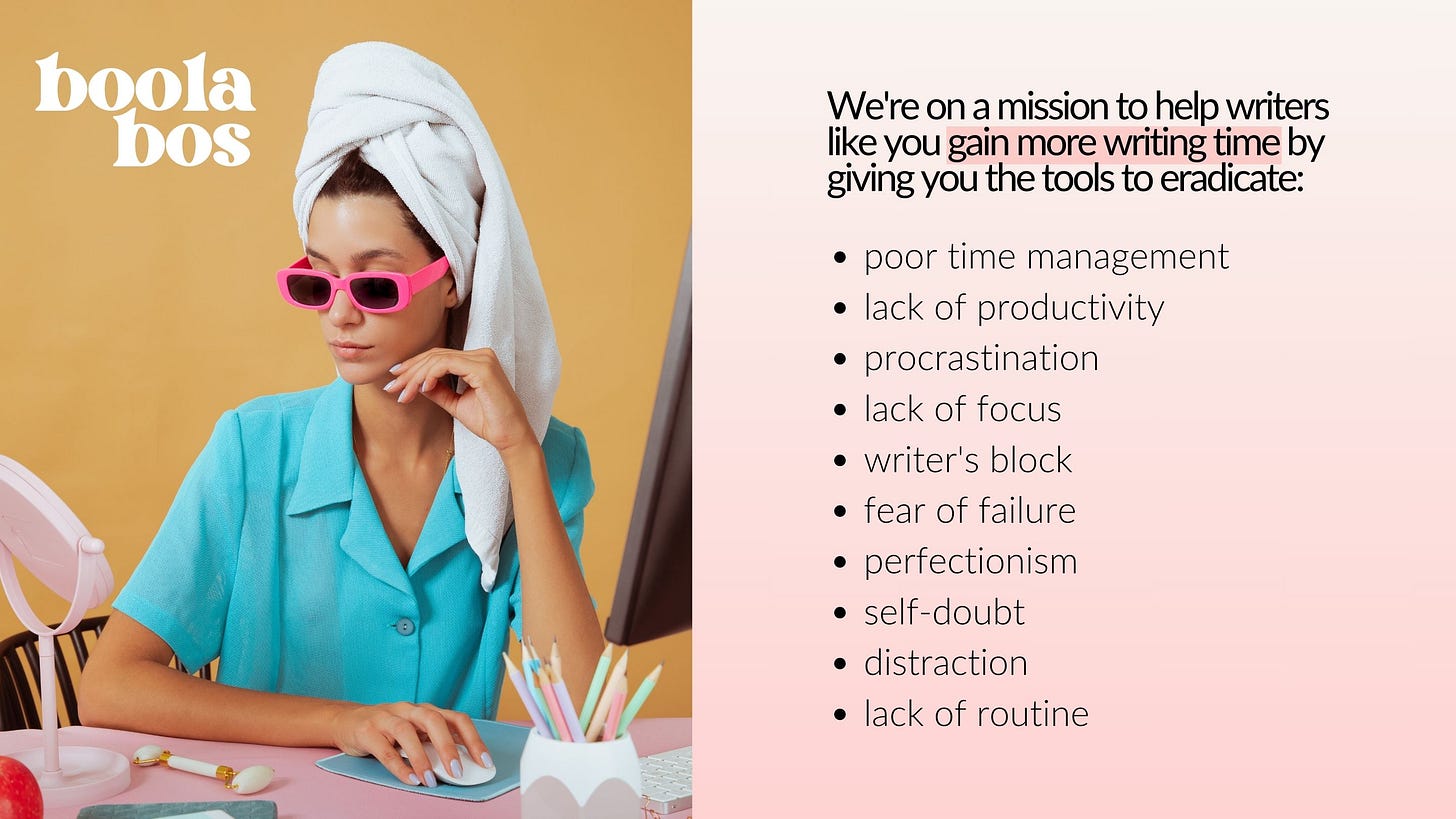

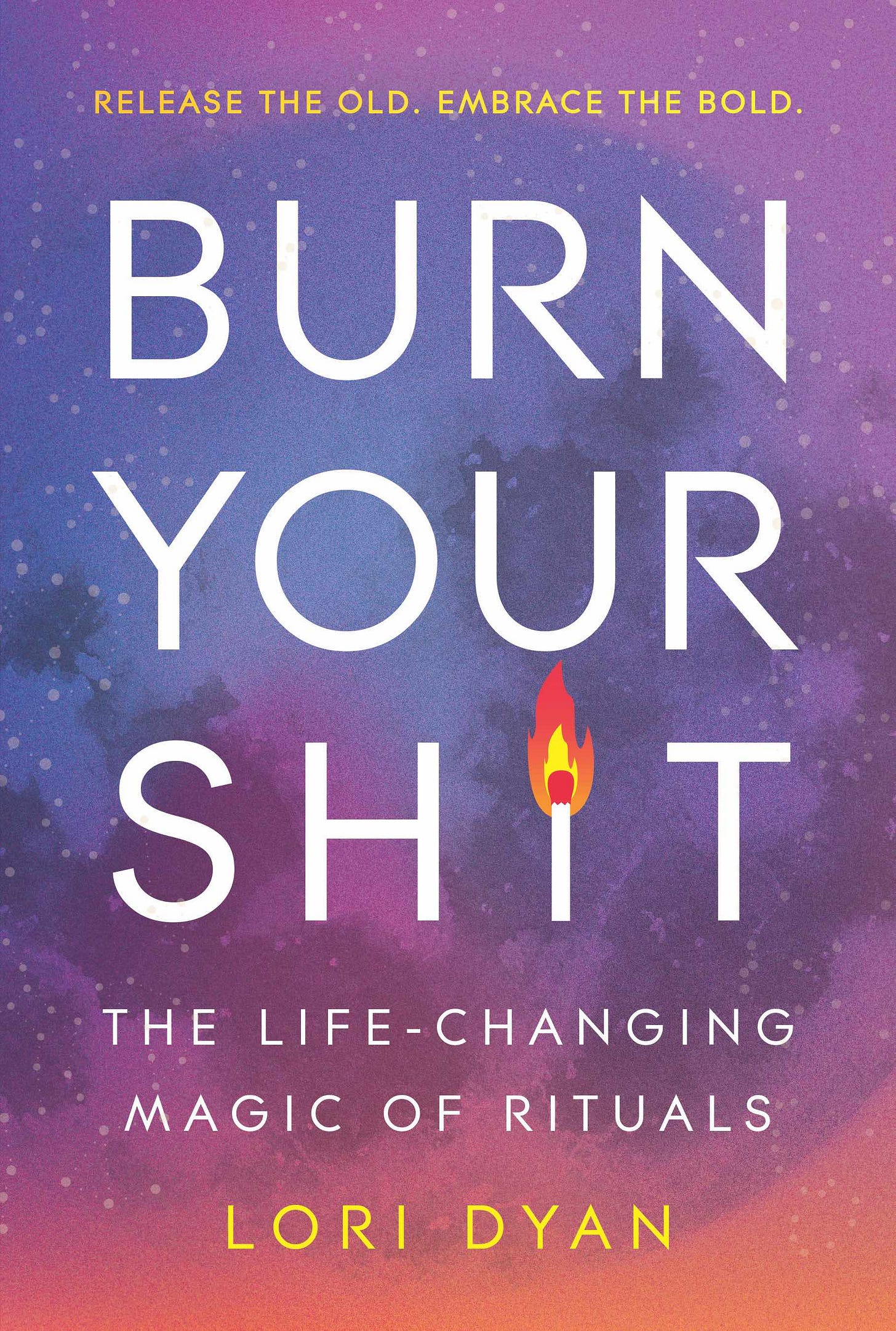

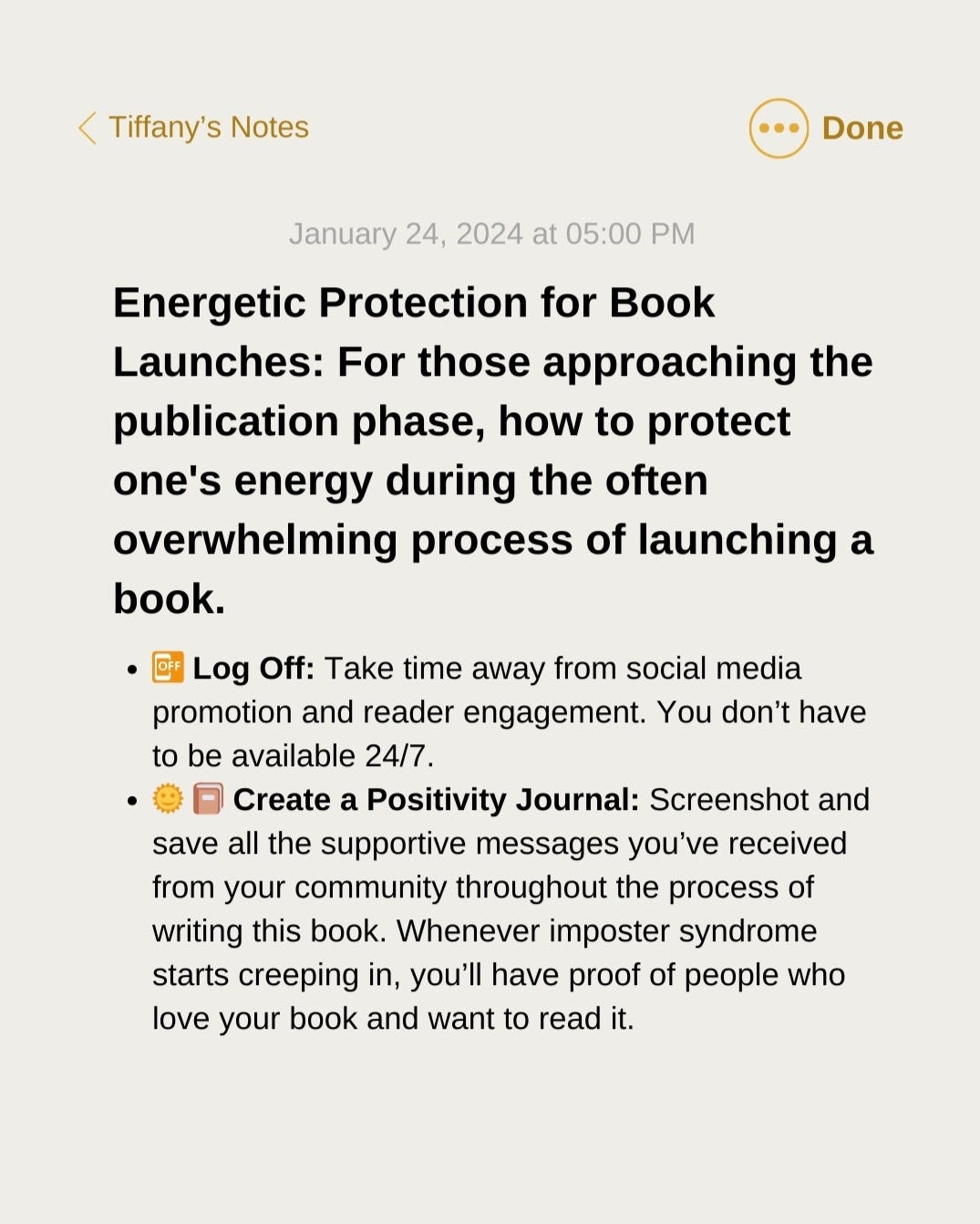
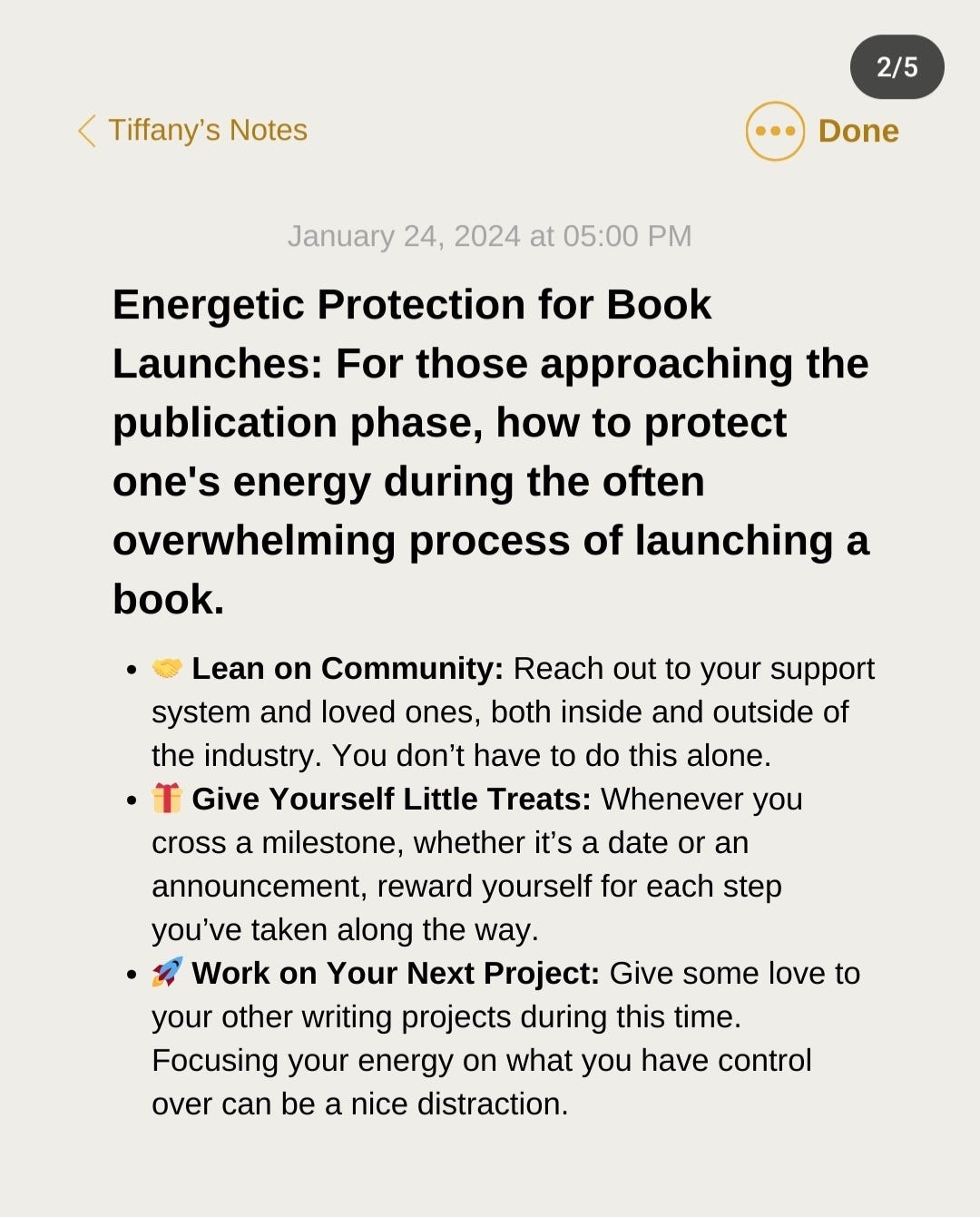
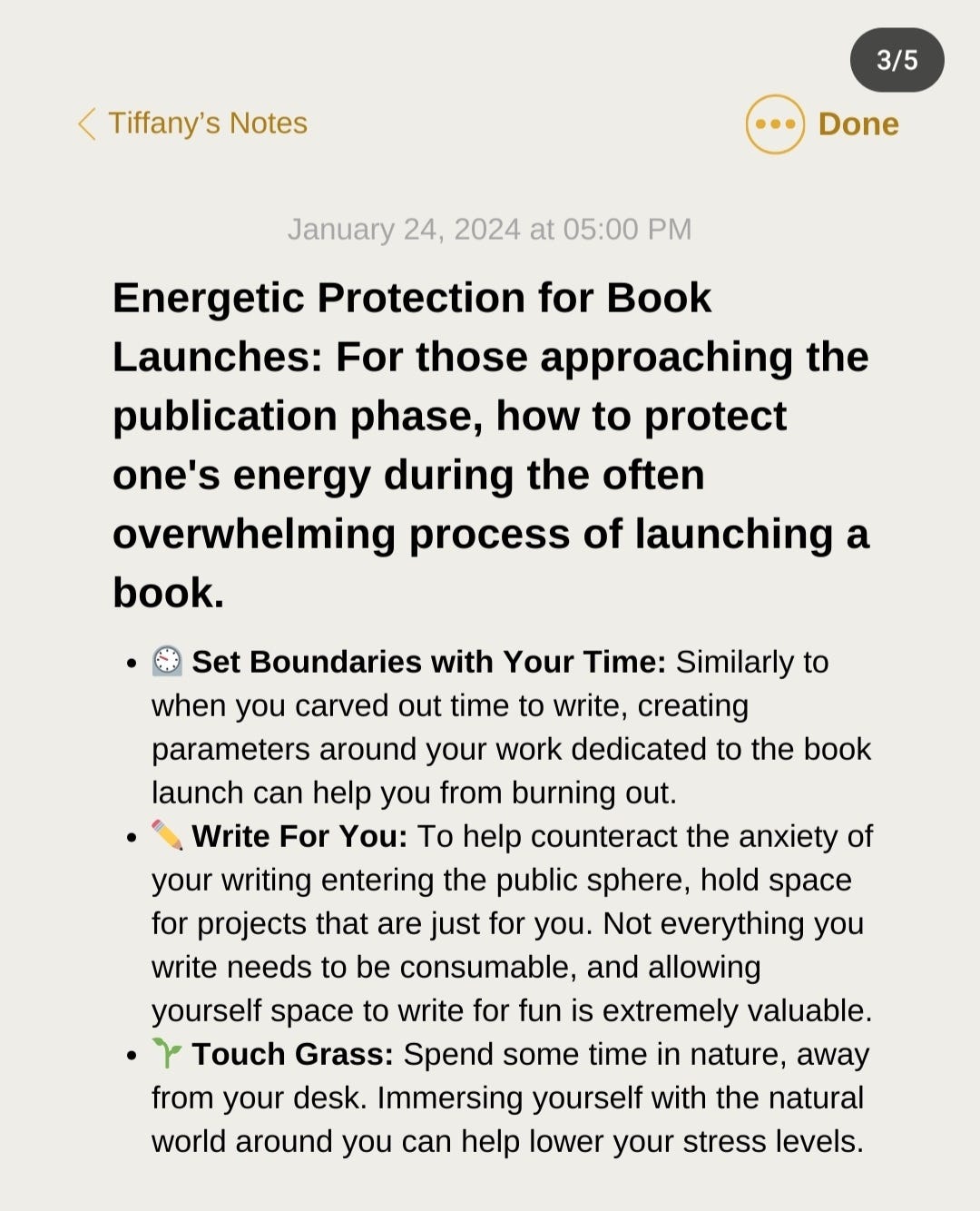
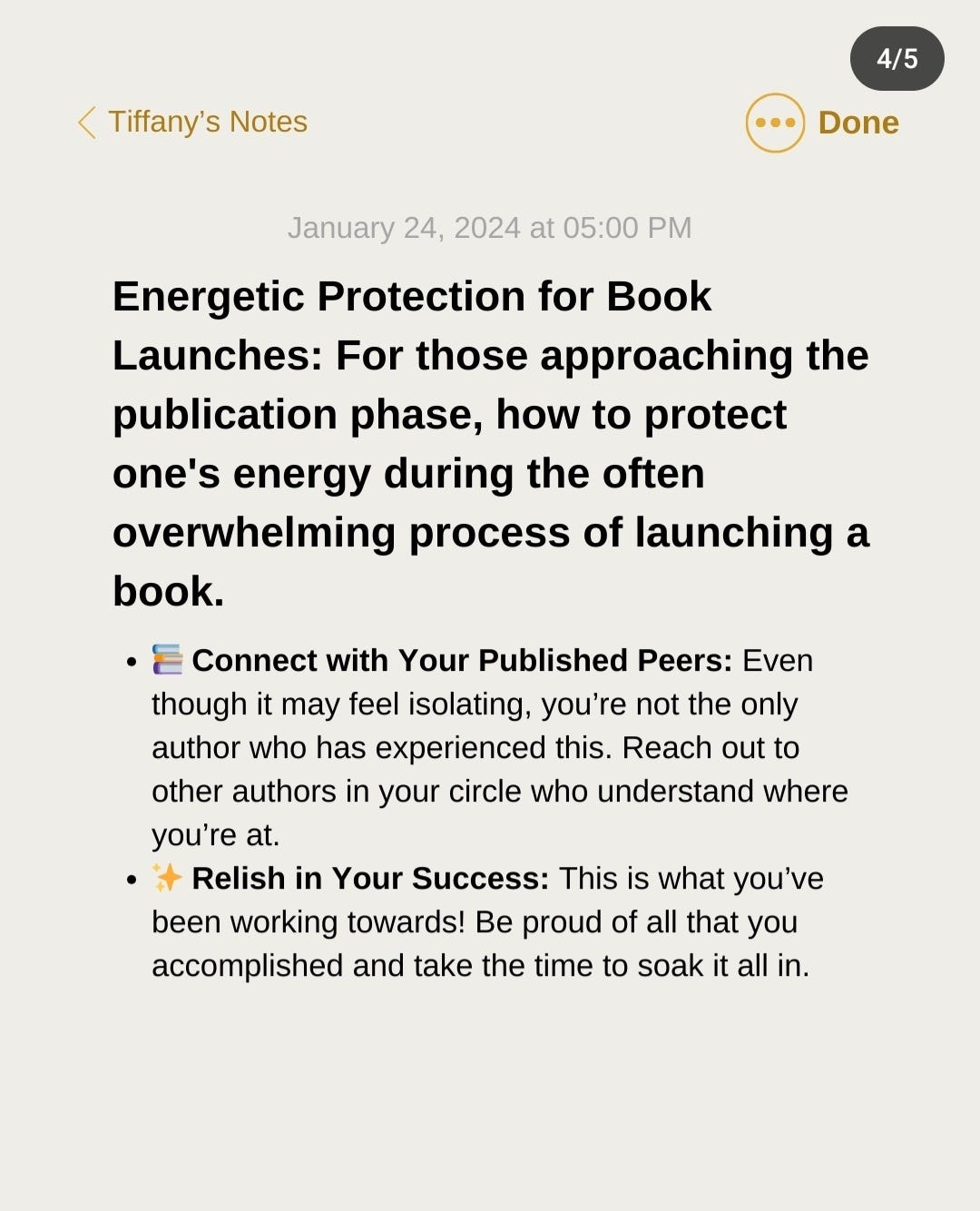
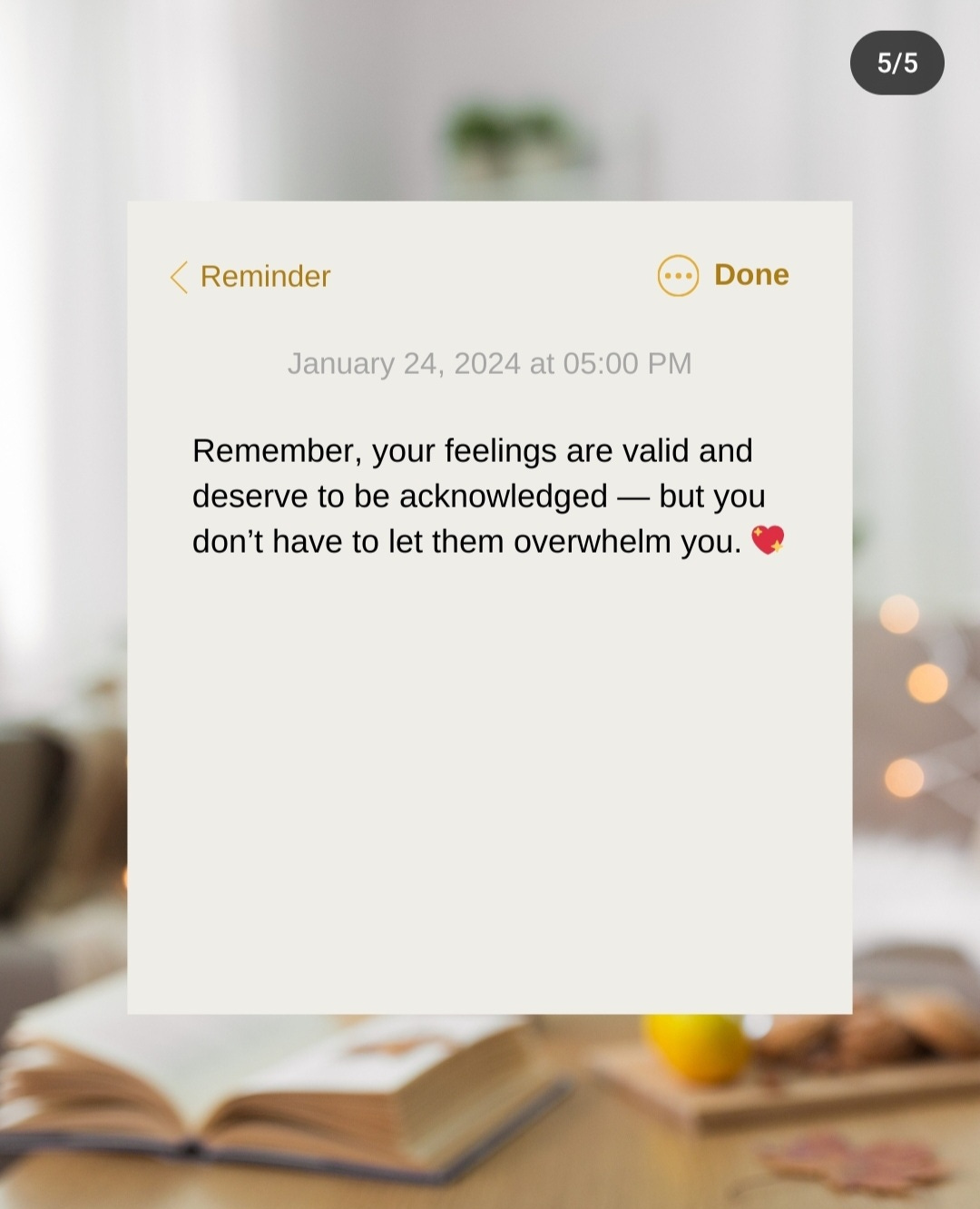
Ah I loved this one! I watch a lot of sports documentaries about the psychology behind the game and this really resonated with that way of thinking about making space to perform as a writer
What topic would you love to see us tackle in upcoming issues? Struggling to show up for your writing? Finding you can't focus when you are writing? Not sure where to put your writing energy (writing, revising, platform-building?), not sure how to grow your writing network? Let us know!!